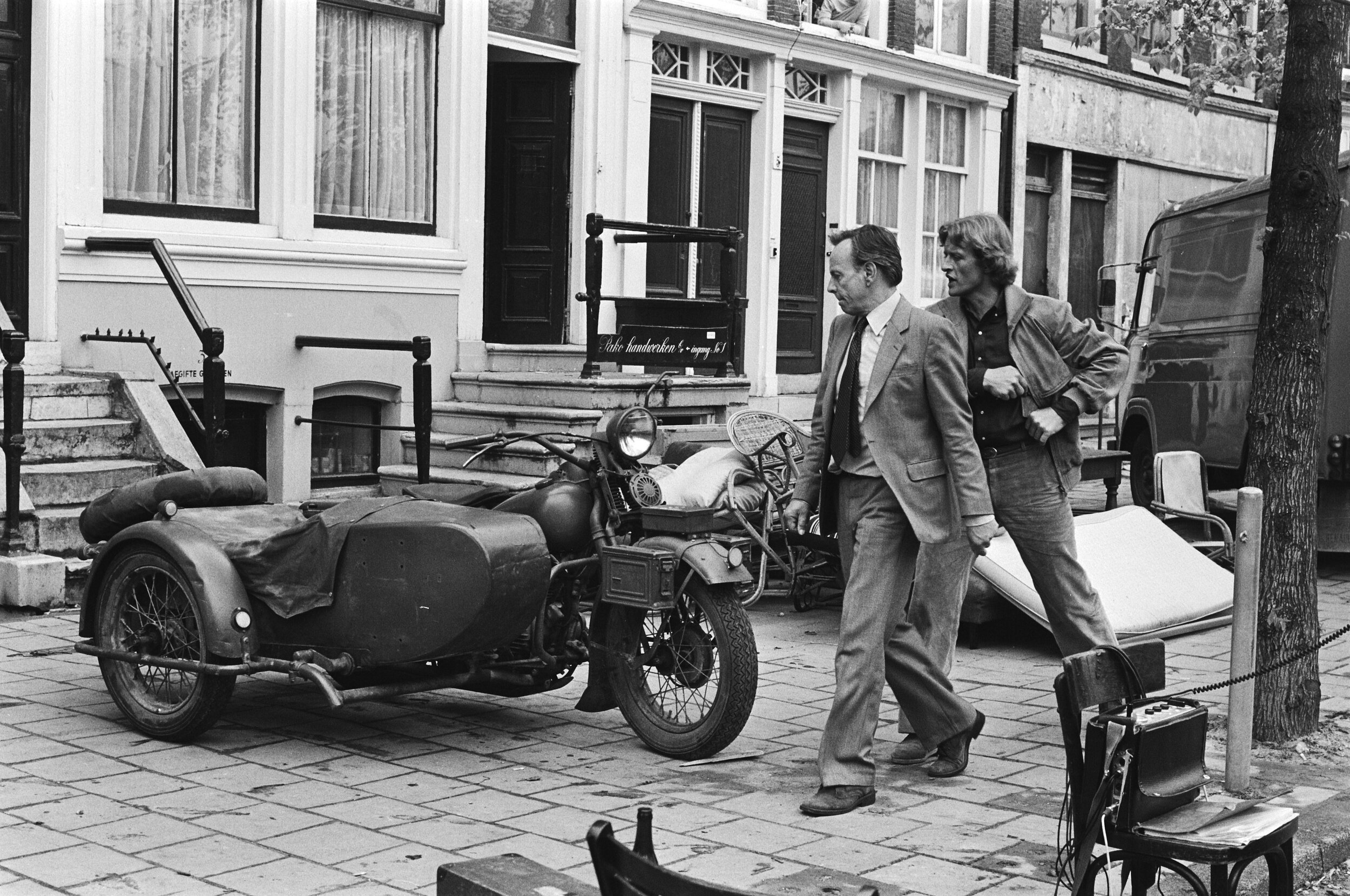A Dutch American writer
Janwillem van de Wetering (1931-2008) was a celebrated and bestselling author whose novels were read not only in The Netherlands, but also widely abroad. My biography on Van de Wetering will be published in May (www.janwillemvandewetering.nl). In this essay I will make clear that not only was he inspired by the United States, he also became famous thanks to his American readers.
Boekomslag (Asoka)
Known in the Netherlands through America
Van de Wetering was a restless youth at heart, constantly searching for the meaning of life. He read On The Road and Dharma Bums by Jack Kerouac, about which he wrote much later:
Kerouac said what I felt, but could not get on paper. [...] On the road, yes, on the way to nowhere. From here to there, from there to further, a fascinating but terrible movement.1
This restlessness, combined with his fear for self-destruction, made him travel to a Zen monastery in Japan, the Daitoku-ji in Kyoto, in 1958. For a year and a half, he subjected himself to the strict rules of the Zen monastery and learned to look differently at the life questions he had to cope with. Years later, he wrote about this experience in De Lege Spiegel. The book was not successful in the Netherlands, but when it was published in the United States, reviews were positive, and it was placed on the list of The Book of the Month Club. In the Netherlands, Van de Wetering's fame abroad was noted in the autumn of 1974, thanks to his friend IJsbrand Rogge, who was in Japan with him. Rogge wrote a letter to a radio station and to a few newspapers in which he said it was a scandal that no attention was paid to a Dutch literary talent to whom Time had devoted an entire page. Only then was Van de Wetering discovered by the Dutch media.
Van de Wetering in Madame Tussauds, Amsterdam (privé-archief Thera van de Wetering)
In Maine, you never belong
In Amsterdam, Van de Wetering was manager of the textile company PAKO, run by the family of his wife Juanita. PAKO was then based at the Haarlemmer Houttuinen in Amsterdam and sold embroidery kits. Besides his job at the company, Van de Wetering served in the voluntary police in replacement for a military service which he did not fulfill.
The police work suited him, and it inspired him to write his first detective novel featuring Grijpstra and De Gier: Het lijk in the Haarlemmer Houttuinen (Outsider in Amsterdam). He noticed that he could express his social and philosophical ideas through detectives. There is no freedom without rules--that was what he had learned in the monastery, and it was what he had learned again as a police officer.
Foto Grijpstra en de Gier, Hans van Dijk, collectie Anefo in Nationaal Archief (Wikimedia commons)
Dutch reviewers found it hard to say what kind of writer Van de Wetering was. His novels became a subject in the ongoing discussion on the literary qualities of detective fiction. Ivan Sitniakowsky of De Telegraaf said that the only useful distinction is if a book is good or a book is bad. However, among Dutch reviewers, Sitniakowsky’s view was a unique one. Nevertheless, the books on Grijpstra and De Gier sold by the thousands, and Van de Wetering became a famous writer. In 1975, he decided to move to Maine. Did he have a foreign career in mind? For him, the main reason was that he wanted to deepen his meditation training at the Moonspring Hermitage. However, as an author, he also hoped for a larger audience. Besides, Van de Wetering was fascinated by quirky American writers such as Kerouac and William Kotzwinkle, and he loved the hard-boiled detectives of Hammett and Chandler novels. He loved Maine, where he lived since 1975. “You never belong,” he said in a radio program, and that's exactly what he liked. He wrote about it in The Nation.
Foto Haarlemmer Houttuinen (Marjan Beijering)
Van de Wetering was born on February 12 and named Jan Willem Lincoln. He died on Independence Day, July 4, 2008. It all seems meant to be. The Dutch American writer was remembered in Dutch newspapers as well as in The Guardian, The New York Times and Der Spiegel. He was known more as a bestselling author, adventurer, and philosopher than as a Buddhist.
Janwillem van de Wetering (Asoka)
1 ‘Jack Kerouac: de grote opschudder’, in: NRC Handelsblad, 1-9-1978. Review of Ann Charters biography on Kerouac.
2 Website De werelden van IJsbrand, on the time Rogge spent with Van de Wetering in Japan, in 1958.
3 The way life should be in The Nation, august 14 2003
By Marjan Beijering, Geschiedenislab.nl
April 30th, 2021
For the NLCLUB.NYC





